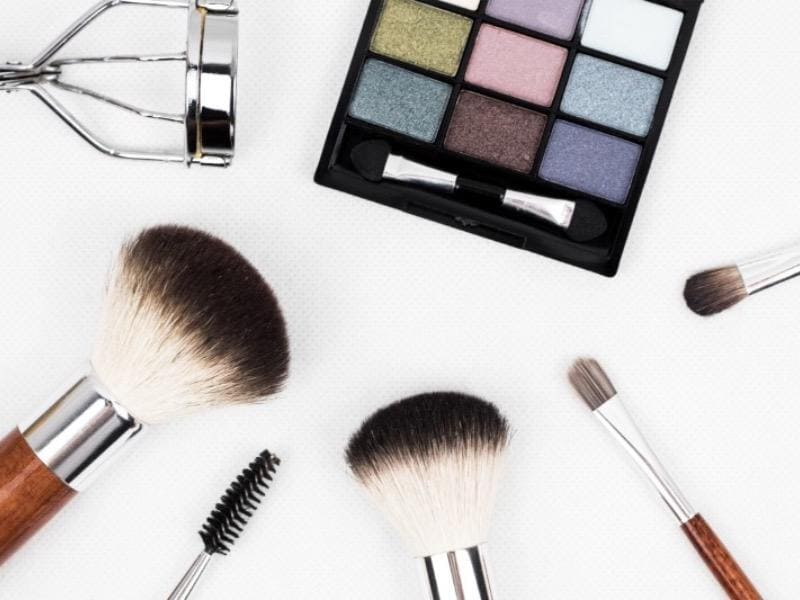In the second and final part of this article series, we take a look at how makeup & skincare brands foster self-acceptance and mental wellbeing amidst the pandemic and which brands are using a similar marketing strategy in Indonesia.
In the wake of a global crisis, makeup brands must figure out how to reposition themselves as our makeup habits and perceptions about beauty continuously evolve. Some of us, for example, wear less makeup since we’re constantly at home around our families and are getting more used to embracing our imperfections. While others wear it on a daily basis just for fun. In the beginning of the pandemic, brands tried navigating these changes by popularizing ‘virtual beauty’ to remind us that makeup is still important because of Zoom meetings and online gatherings. But given the health concerns, ever-changing safety restrictions, job losses, and more kinds of challenges faced during these trying times, many of us came to realize that applying makeup for the sake of impressing others is becoming increasingly unnecessary.
We may also find completing simple tasks – such as getting up in the morning, working and attending household chores – to be overbearing these days. Hence, we prefer making space for activities that are simple and feel good rather than those that require work and maintenance. In relation to beauty, this shift is well evidenced in a series of trends, ranging from the resurgence of interest in skincare and ‘natural beauty’ to the rise of DIY makeup experiments and creative online tutorials. More people are also finding that beauty routines play an important role in helping them cope with stress, boredom, or anxiety. In essence, what most of us define as ‘beautiful’ today may no longer be just about the looks but more about the way we feel.
In light of this, makeup brands today try to reclaim their relevance by adopting the tone of language that is often used when discussing mental health. They do so by emphasizing the importance of self-love, self-acceptance, and self-care to communicate makeup and beauty as part of our mental and emotional wellbeing. For instance, CoverGirl’s brand ambassador/actress Lili Reinhart, who has publicly struggled with body image, recently spoke about how she has been learning to regain her skin confidence during quarantine by accepting her acne. In August 2020, 19-year-old TikTok influencer Addison Rae launched a viral makeup line, ‘Item Beauty’, with the tagline “a dose of self-love” that’s dedicated for Gen Z whom she thinks are demanding “radical self-acceptance” to be included as part of beauty norms. Rare Beauty, goes even further by collaborating with organizations to help erase the stigma around mental illness and encouraging others to have a conversation about how they’re doing in the current crisis.
Self-acceptance in Indonesian makeup & skincare brands
Within the Indonesian context, there are a few makeup brands that have started embracing self-acceptance in their communications. One of them is local influencer Titan Tyra’s makeup line ‘Secondate’ that was launched in February 2020. The brand drew positive reviews by using real-life accounts of women’s personal experiences that define their beauty as part of their distinctive branding – many of which include difficult subjects that are hard to reckon with, much less talked about in public, such as surviving depression, sexual abuse, and cancer. This way, Secondate communicates self-acceptance by providing consumers with the space to accept and share their journeys in a way that makes them feel safe and heard.
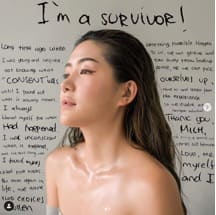
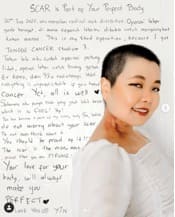
Secondate’s real-life accounts of female survivors posted on Instagram |
Courtesy of Instagram/@secondatebeauty
Local beauty brand, Somethinc collaborated with a beauty blogger from Papua, Lifni Sanders and launched cushion foundation with a variety of skin tones including Papuan skin tone (tends to be darker than other Indonesian skin tones). This is one of the first local brands to launch such an offer. #BeYouBeSomethinc
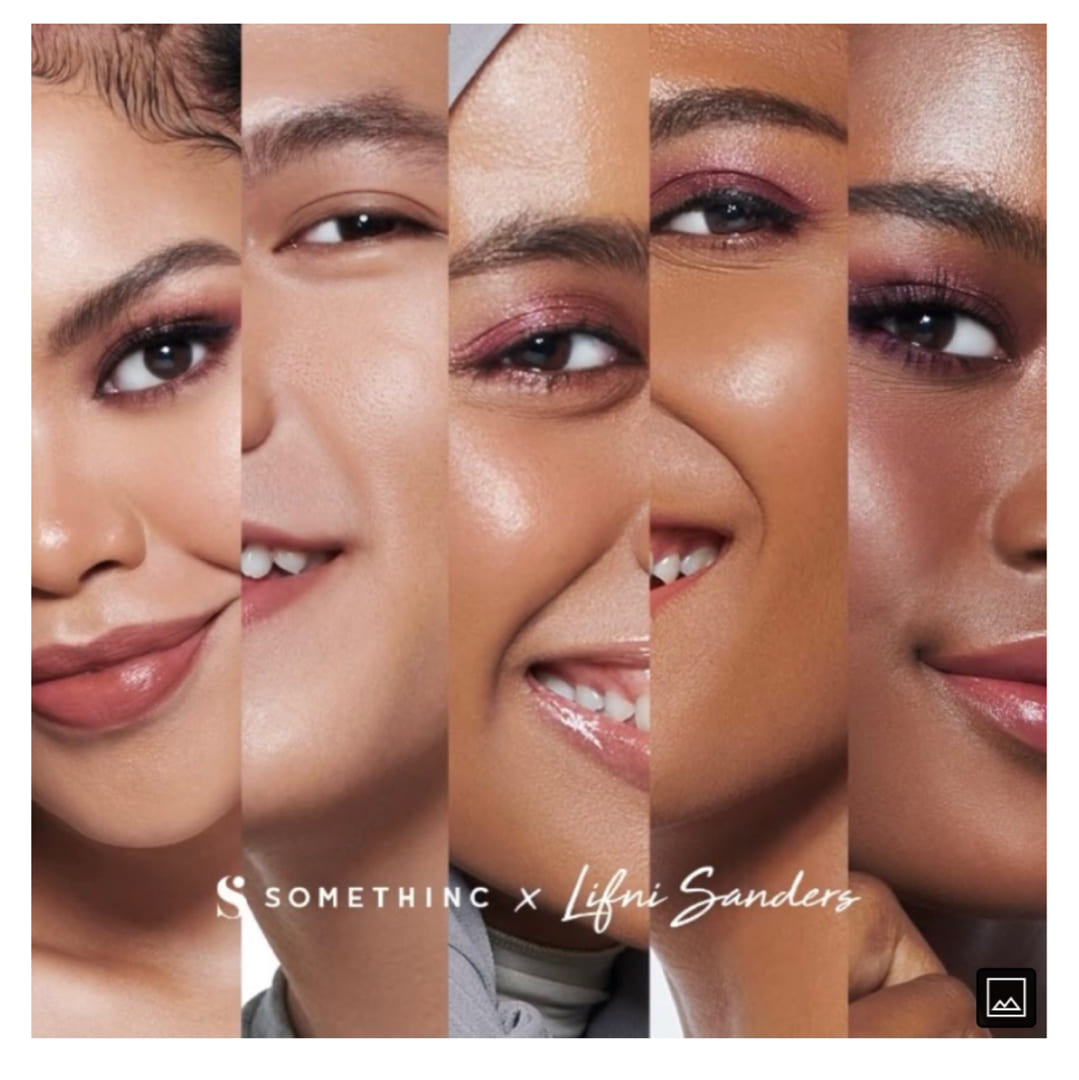
Somethinc’s foundation range |. Courtesy of Instagram/@somethincofficial
From the mainstream category, L’Oréal Indonesia worked with the famous Indonesian beauty content creator Tasya Farasya on a new ad campaign that shows the influencer ignoring haters’ comments by reciting phrases such as “I insist to stay true to myself and never imitate” and “I convince myself that I’m beautiful, worth it, and unbreakable”. Another example of a local brand that more explicitly evokes self-love and self-acceptance comes from skincare instead of makeup category. In August 2020, ‘Base’ created the campaign “beBASEkspresi” (free to express) to remove “the stigma and the concept of standardized ideal of beauty”. To do this, the brand sold a range of skincare merchandises with specific themes such as self-expression (“Freedom to be Ourselves” or “Fearlessly Authentic”) and diversity (“The Beauty from Sabang to Merauke”), an issue that strongly persists in the local beauty landscape to this day.
Finally, local skincare line from MS Glow promotes inclusivity and self-acceptance by featuring real, everyday male brand ambassadors. These confident, smart, daring, anti-mainstream brand communications use the #everyonecan hashtag to highlight this inclusivity. While not all viewers were complimentary regarding the use of such real-life ambassadors (some negative backlash on social media), the brand is able to relate to a wider audience.
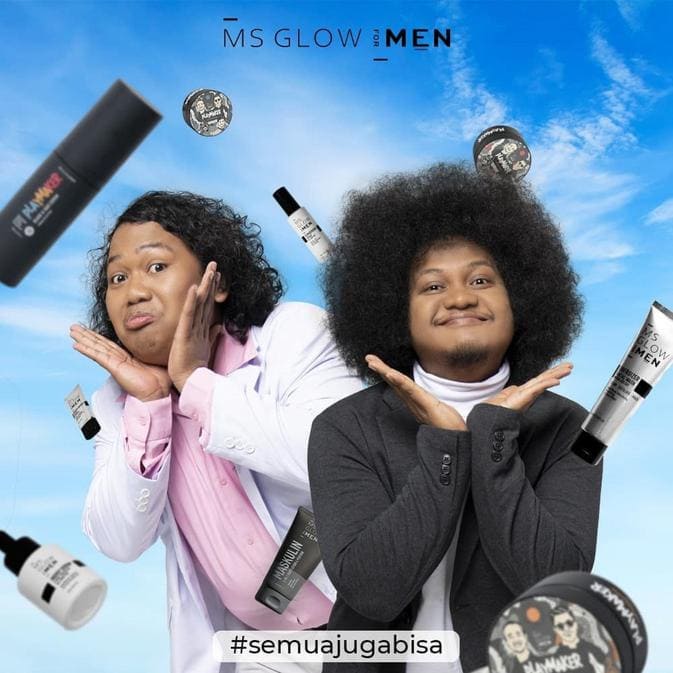
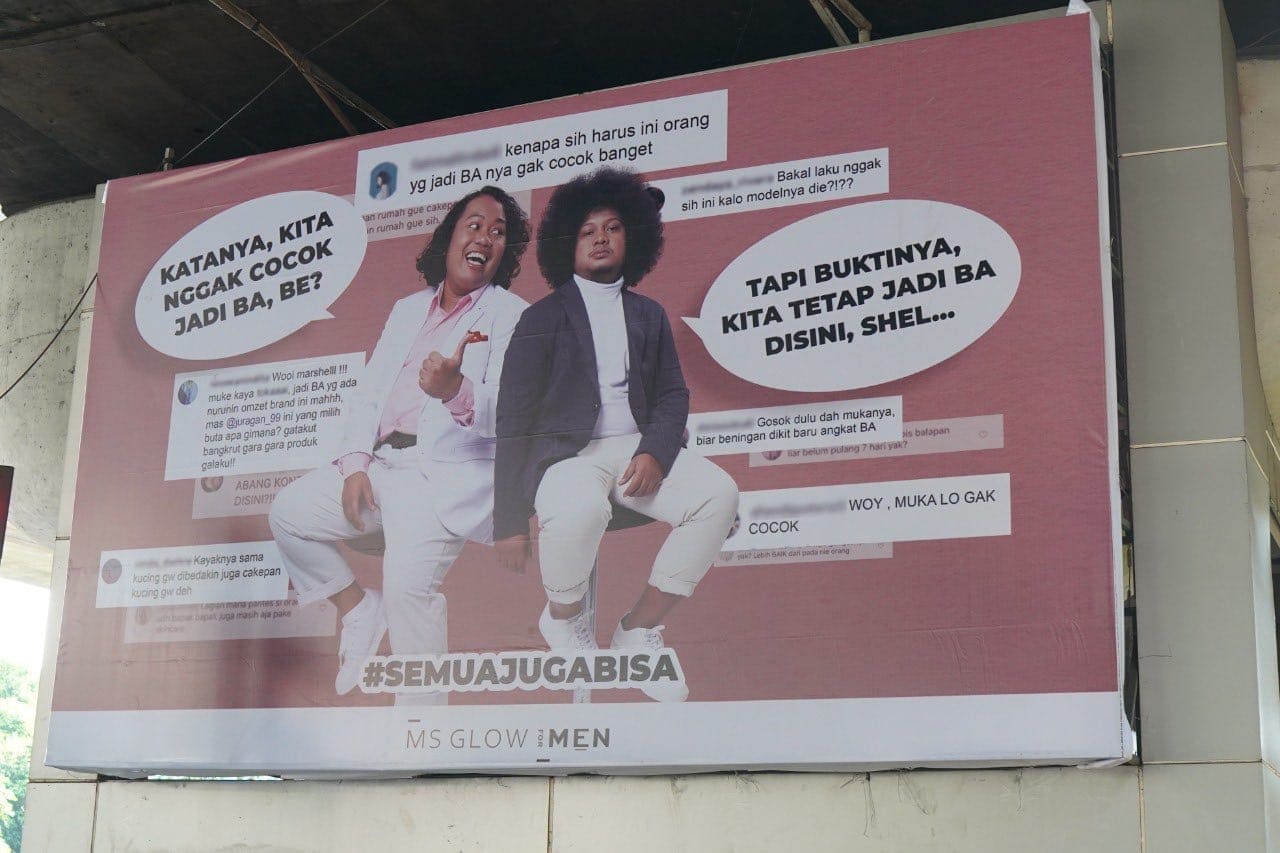
MS Glow iMen Communications |. Courtesy of Instagram/@MsGlowForMen and Twitter/@reladypjs
In summary, when it comes to beauty, self-acceptance messages can in fact manifest in different ways, whether they concern about being diverse and inclusive, embracing skin imperfections, caring for our mental health or even saying no to haters. But one thing that’s certain is that they are all here to challenge the status quo. Amidst the pandemic, we have more than enough time to assess things that no longer suit us, including unrealistic beauty ideals. Now more than ever is the time for brands to listen, to allow us to define beauty in our own ways, and to support us.


